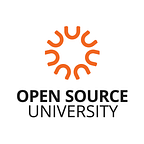A platform to solve the information coordination relationships problem between Academia and businesses
In May 2017, Hristian Daskalov, project lead at the Open Source University on exchange at Riga Technical University, took part in Latvian ‘Youth Speak Forum’, organized by world’s largest students-led organization AIESEC and their partners from world’s leading consultancy — Ernst & Young (EY).
Together with an international team of students from the Baltics region, Hristian worked on designing a scaled-down prototype of the Open Source University, i.e. SolveIt.LV, addressing what the team identified to be a key deficit in the academic process in Latvian universities in particular. The deficit itself— lack of close to real life case studies as a mechanism to connect students, Academia, and businesses in meaningful learning experiences by providing a way for companies to benefit from student-led open innovation solutions, which are being developed in collaboration throughout the course of studies.
While the prototype concept, developed under the supervision of EY consultancy team (some of whose ed. sector clients include the University of Latvia, Latvian Ministry of Education & Science, and the State Education Development Agency) was awarded 1st place in competition with other social innovation solutions that were brought forward to the attention of the expert jury, the broader Open Source University platform would address not only the deficits, but the root cause behind them.
According to EY, information coordination relationships are what enables the match of skills to jobs, hence the need to address their current quality, which is far from satisfactory, in order to bridge the gap between businesses and Academia.
While building the platform to coordinate the much needed closer cooperation (incl. in terms of submitting, designing and promoting collaborative solutions) is a step in the right direction, its underlying technology is what would separate the successful attempt from yet another high-end ed. tech. solution that fails to deliver on its promises.
Here is where the Open Source University stands out from the crowd, being world’s first distributed learning & career development ledger with potential to revolutionize the way 7 billion people develop academically and grow professionally. Based on the Ethereum blockchain, the platform will serve two main product functions:
i) As a distributed database that enables Academia, learners, and businesses to record and verify educational and professional development achievements, incl. such assigned by businesses. This in turn will enable, for those users who so desire, businesses to locate suitably qualified learners through highly targeted searches.
ii) As a global marketplace upon which high quality academic and broader L&D offerings will be made available, bought and sold with the help of the EDU Token that will enable transactions on the platform and will be traded on leading cryptocurrency exchanges.
Only by decentralizing the setup of the platform solution, scalability would be successfully enabled. Because no matter how strong they are, information coordination relationships on micro-level would never be sufficient and resilient enough to address the mismatch on macro-level — something that the decentralized Open Source University platform would be able to solve through the power of big data analytics.
Quality education is one of UN’s Sustainable Development Goals (SDGs). As such, AIESEC (which is partnering with the UN on enabling the successful implementation of the Goals) gave an invaluable boost to the Open Source University project by allowing the project to benefit from students’ first-hand experiences and consultants’ professional insights.
Only days away from its ICO, the Open Source Uni project at www.os.university is once again looking towards the broader community in order to accomplish its initial coin offering as effective as possible and focus to what matters most — substantially increasing the number of youth and adults who have relevant skills, including technical and vocational, for employment, decent jobs and entrepreneurship (UN, SDG #4).
Contact us at hello@os.university in case you are interested to contribute to the project.
